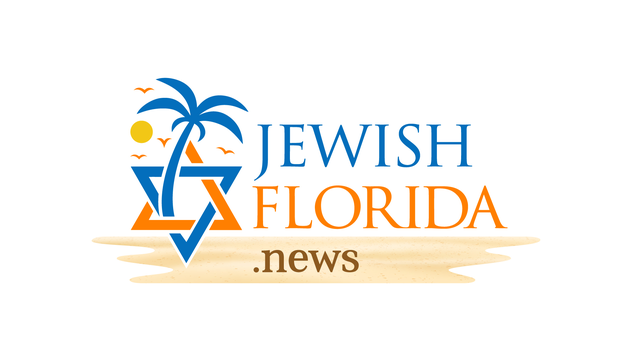
Jeb Bush designated January as Florida Jewish History Month in 2003. To commemorate this month, WGCU looks into the history of what Jewish people have done to impact Southwest Florida.
“Jewish settlers in Florida have made an important impact on the entire state,” said Marina Berkovich, President of the Jewish Historical Society of Southwest Florida said.
“People are totally unaware now of who these people were. It’s important to celebrate and commemorate the contributions of the Jewish people to the history of Florida.”
The Rosen Brothers
Leonard and Jack Rosen are two who made a difference in Southwest Florida.
According to a timeline of Jewish history in Southwest Florida written by Berkovich, Leonard and Jack Rosen were two Jewish brothers who saw potential in land on the western tip of Lee County.
The land was 103 square miles of what was mostly wetlands. The property was so dense with woods, only hunters and bootleggers would dare to enter it. The Rosen brothers would change the land to not only be hospitable, but to be a major development in Southwest Florida.

In the mid to late 1950’s, the Rosen brothers brought in the largest amount of drainage equipment into Florida for that time. They drained the land and helped to incorporate it into the city of Cape Coral, according to Berkovich.
The Rosen brothers also made a significant contribution to the 1963 Cape Coral Bridge project, the second bridge built to connect Cape Coral to the mainland.
Berkovich said that Leonard Rosen pledged $100,000 to Fort Myers, guaranteeing that if bridge toll revenues fell short, the bridge would still be built. The bridge opened on schedule on March 4. 1964.
The city bond for the bridge, $2.2 million, was repaid by tolls sooner than was expected. The $0.25 toll fee was lifted, Berkovich said, and the Rosen’s money was never needed.
The bridge also helped to connect children to attend a Jewish school that was also built by the Rosens.
Berkovich said she talked to people who would go to Fort Myers from Cape Coral by boat when they were children. At that time, they had no other means of transportation to attend school.
The Rosen brothers bought a piece of land on Del Prado where the temple, Beth El, was relocated from Fort Myers so children could attend school at the temple.
“They had a Jewish community there, and the children did not have to be boated to school. They had an incredible influence in building the Jewish community in the area,” Berkovich said.
Paul Kaplan has written multiple books on Jewish cultural history, one of which is titled Jewish South Florida.
“There’s probably not much awareness about Jewish history,” Kaplan said. “And also the diversity of Jews within Florida, and the unique history of it. So, [Florida Jewish History Month] is an opportunity to delve into it.”
Lee Ratner
Another Jewish person of great significance in Southwest Florida was Lee Ratner, whohelped to startLehigh Acres.
Ratner moved to Lee County from Chicago, where he was the eighth largest commercial advertiser on television at the time, Berkovich said.

In 1952, Ratner bought 18,000 acres where Lehigh Acres is today. He called his property “Lucky Lee Ranch” and built an airstrip to fly in friends from Chicago. Ratner would take his friends hunting or to the Everglades.
Two years after Ratner bought the land, he teamed up with Gerald Gould to begin development there, according to the website of the Jewish Historical Society of Southwest Florida. They changed the property name from “Lucky Lee Ranch” to “Lehigh Acres,” and bought about 54,000 acres to add to the development.
Ratner and Gould built homes for retirees at Lehigh Acres, which became one of the first retirement communities in Florida. They also paid to build Lee Boulevard, which connects Lehigh Acres to Fort Myers.
“Nobody really remembers [Ratner] that much,” Berkovich said. “The very fact that there is development [at Lehigh Acres] wouldn’t have been there, were it not for Lee Ratner.”
Gerald Laboda
Gerald Laboda was the first oral and maxillo-facial surgeon in Lee County. He and his family moved to Southwest Florida in 1965.
“At that time, the Jewish community did not have a very high profile,” Laboda said. “There were not many Jewish people in the area. And that covers everything from Sarasota to Marco Island, I’d say.”
Laboda said that the Jewish community in Southwest Florida initially started after World War II. People who were stationed in the areas, such as at the Buckingham Army Airfield, stayed in the area after the war.
When Laboda got out of the army, he knew Lee County could use his skills. Before he began his medical practice, people who were hurt and had facial fractures would be transported to Tampa or Miami for surgery.
“It’s not good care, number one, to do that,” Laboda said. “To move patients that are hurt badly.”
He said that it became apparent that this type of surgery was very useful in Southwest Florida. However, he said he had to educate the rest of the medical community about his skills in oral and maxillo-facial surgery.
Around 2000, Laboda was appointed as the chairman of the board of dentistry in Florida by Governor Jeb Bush. Bush would later designate January as Florida Jewish History Month in 2003 to honor the contributions of Jewish people such as Laboda.
“[Florida Jewish History Month] is a great opportunity to be able to educate people about each other,” Laboda said.
Berkovich said she’s seen many people who aren’t Jewish become interested in Jewish history through the Southwest Florida Jewish Historical Society.
“That is to me, the largest indication of continuing benefits from this project,” Berkovich said. “Because the more acceptance the community around the Jews is, the better chance of Jewish survival.”

